As we close 2019 and begin 2020, we want to practice gratitude with great intention by recognizing and magnifying our top 10 for the year.
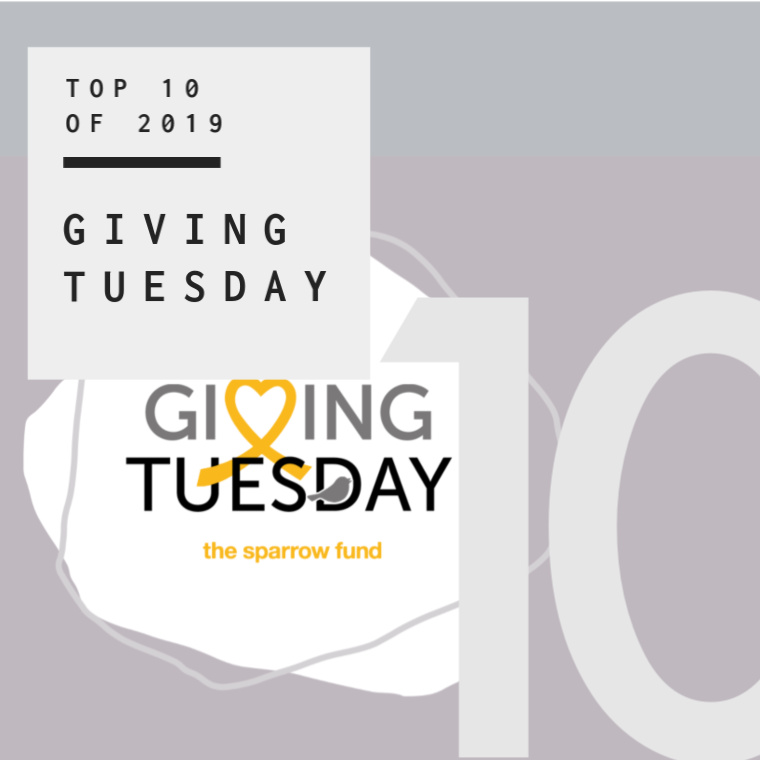
10. Giving Tuesday. We set big goals for Giving Tuesday 2019 because we have big dreams for 2020 and needed engagement and funding to get them started. We set two very specific goals: (1) engage 100 givers and (2) raise $30,000 with the help of a collaborative $15,000 match. It was a slow start to the campaign, and we wondered if our goals may have been too big. But, our people rallied and then rallied more people too. By the end of it all, 127 people together gave $32,601. With that money, we can sustain and GROW what we’re doing. In 2020, we’re going to give more to our Sparrow Services Grant families to best care for them. We’re also hoping to both grow our team and, in so doing, grow what we are able to do for children and families and invest more in our team. We’re about caring for caregivers; that means we need to care for our team well too, making sure we get the training and support we need to be best set up to do this work as we’ve been called to do.

9. Animal Assisted Play Therapy training. In 2018, we launched Project Puppy Love, our canine-assisted therapy program for foster and adopted children and their families, with Louie, a certified facility dog trained and placed through Paws and Affection. As expected, Louie has become a significant helper here who has provided lots of opportunities for comfort, connection for kids and grownups, and creative growth. In 2019, Kelly, his certified handler, enrolled in more training to become a certified associate in animal assisted play therapy so she can get better and better at recognizing and magnifying all the ways that integrating a dog into therapeutic family work can be helpful.
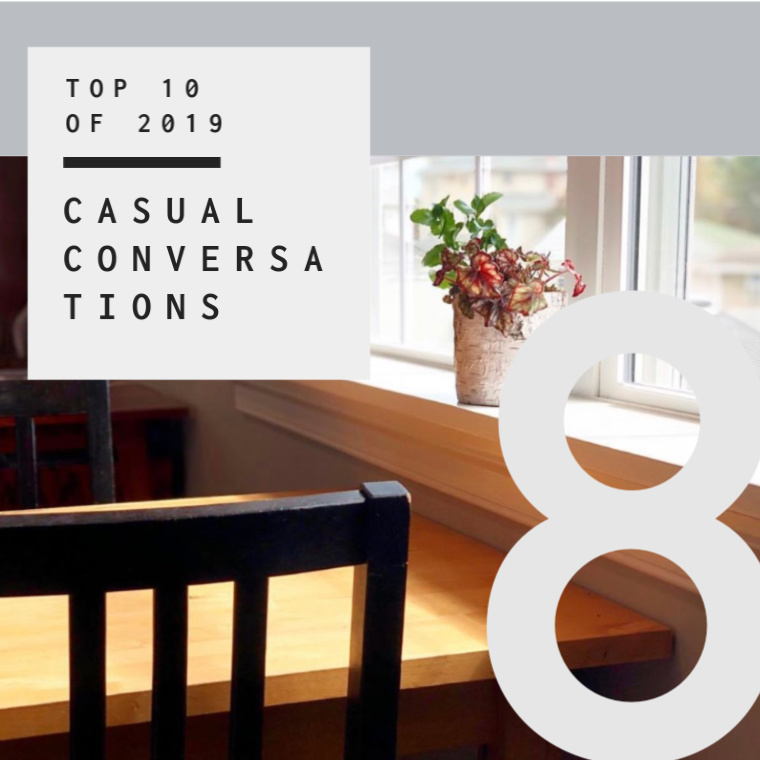
8. Casual Conversations. With a desire to gather people together to foster community and encourage each other, we have been hosting what we call Casual Conversations. Partnering with our friend Simi of Mazi, we invite moms and dads into our space every so often for coffee and conversation around specific subjects worth talking about as we lead our families. In 2019, we talked about helping our kids learn to respond to hard questions, connecting with teens and tweens, navigating social media, talking to our kids about sex, practicing connected parenting, and navigating holidays and family celebrations. We want to keep these gatherings going in 2020, not because we want more on our calendars but because we want more community, more connection, more each otherness. And, we believe that Casual Conversations help us get there. Our next one is right around the corner on Thursday, January 30th when we have another opportunity to talk about how to talk to our kids about sex (because it’s really that important).
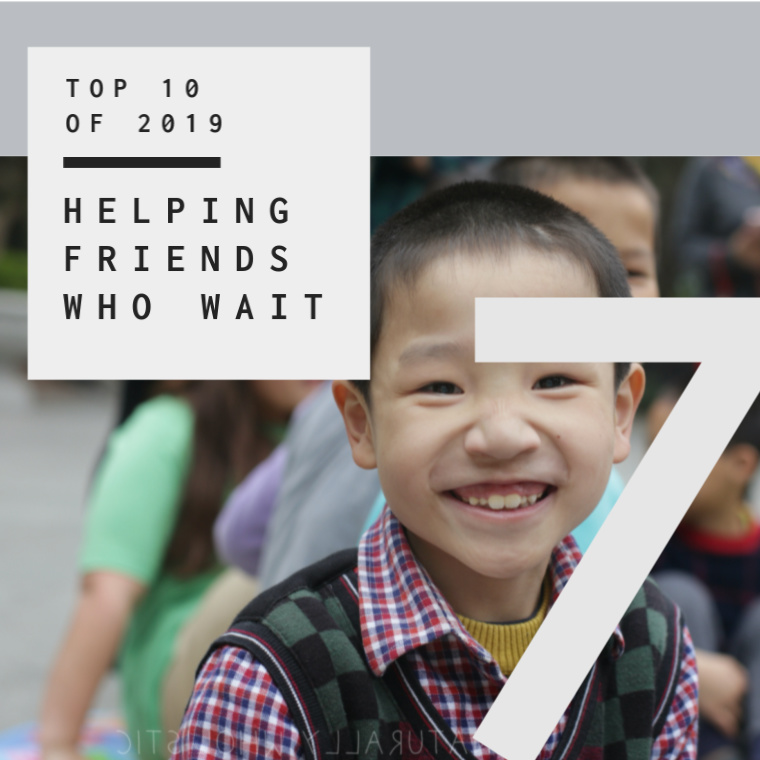
7. Helping friends who wait. As we have cared for caregivers in orphanages in China, we’ve gotten to make a lot of friends, many of whom are waiting to become sons and daughters. When we can, we share about those who are waiting. On February 3, 2019, we got an email responding to a blog post we wrote sharing about one of those friends. “I would love to learn more!,” it said. A little more than 8 months later, in October 2019, that friend became the son he was hoping he’d become one day, and we all celebrated big time. While there are a number of friends who are still waiting for someone to want to learn more, we’re anticipating more big celebrations soon as these friends also become sons in 2020.
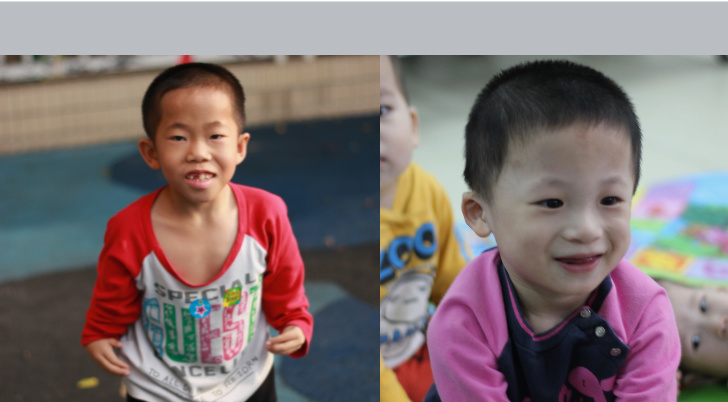
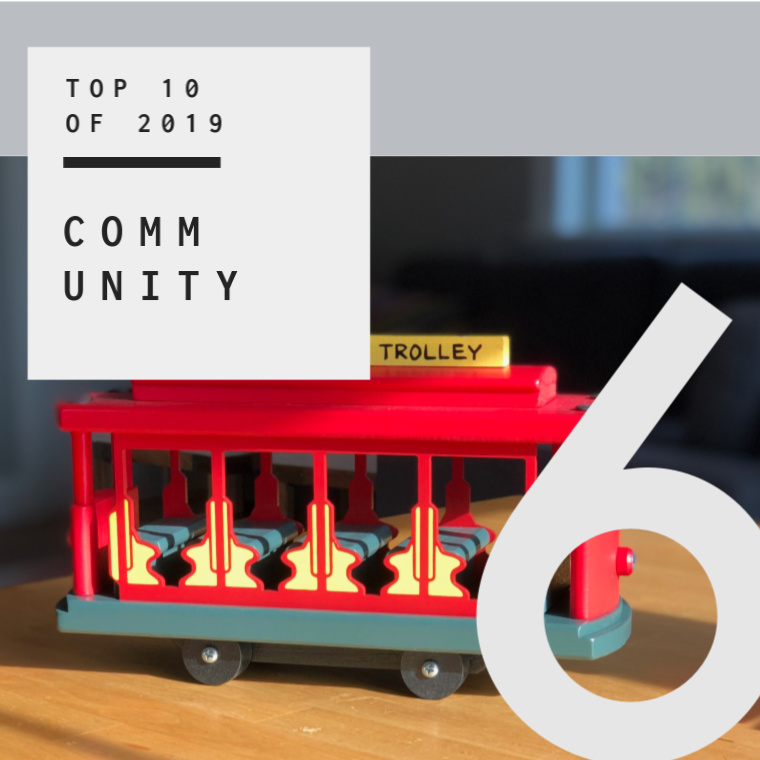
6. Community. In 2019, more than ever before, we have gotten to be a part of big things outside our normal big things. Some of our favorites from the year include a trip to Boston in June where TSF cofounder and codirector Kelly Raudenbush joined the team at Harvard Graduate School of Education as a facilitator for their special institute “Empowering and Strengthening Relationships Across Early Childhood Settings” where she counted it a privilege to grow herself along with educators from all over the world. We served more local teachers as well through two workshops at the MidAtlantic Christian School Association’s annual conference focusing on trauma and partnering with families. And, we enjoyed supporting teachers and children right where we are by going into some schools with Louie and talking about how hard experiences impact us and how relationships can help us grow and heal.
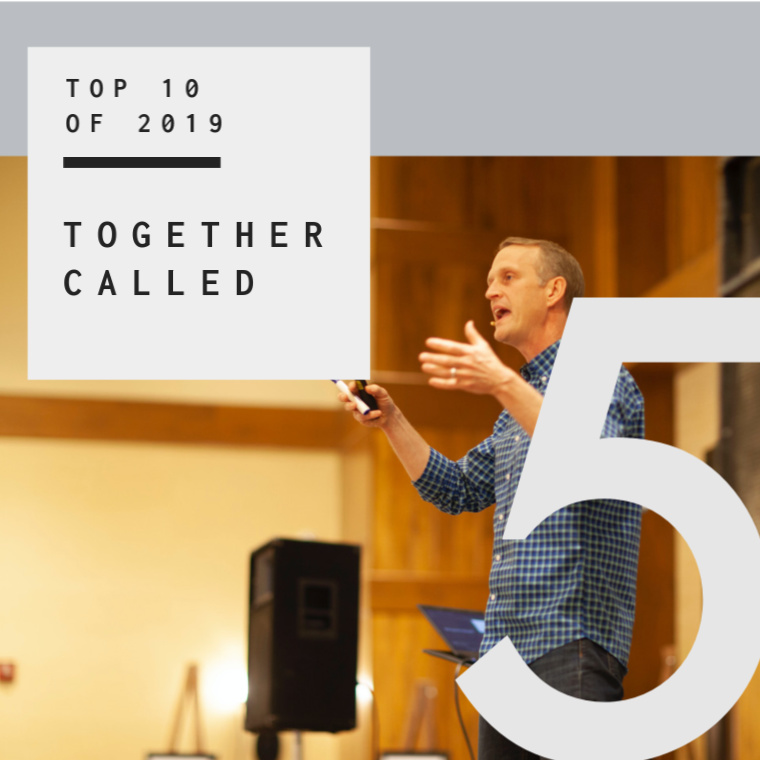
5. Together Called. In March 2019, we hosted our 7th annual marriage retreat for foster and adoptive husbands and wives. We had 106 couples there from 13 different states who together represented over 388 children—164 biological children, 224 adopted from 23 different countries, and many more children who had been or are currently being fostered for a season. Peter Greer from HOPE International spoke to encourage and challenge us as men and women, husbands and wives, and dads and moms. We are still looking back on that weekend and nodding our heads, saying, “wasn’t that great?” It doesn’t surprise us at all that Together Called 2020 filled fast and has a waiting list.
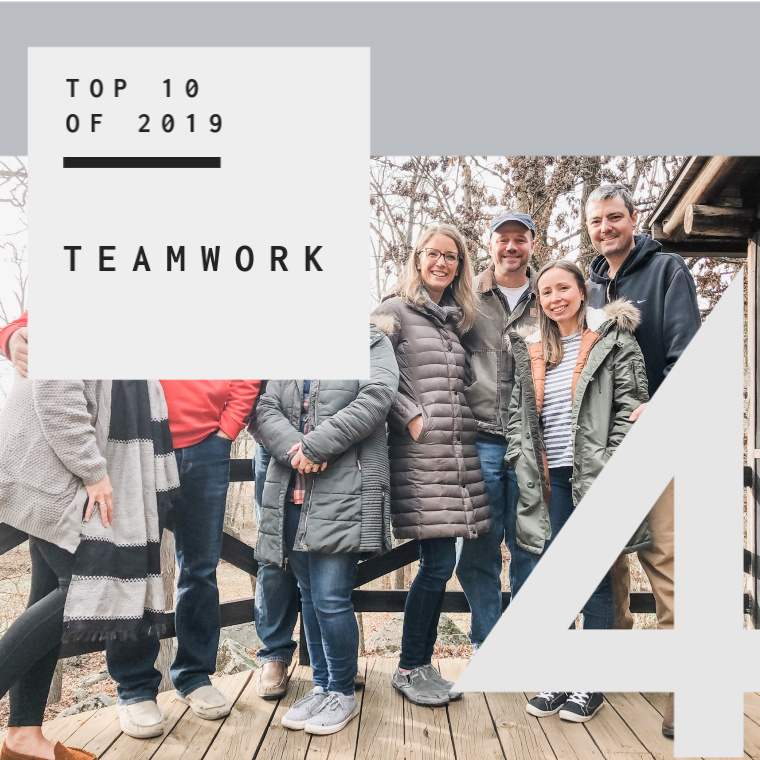
4. Teamwork. We do what we do because we are in this together; we are a team. Since we want to keep learning how to do teamwork better, in 2019, we held our first TSF board weekend retreat where we shared stories, celebrated big and small wins, wrestled with challenges, and dreamed about next steps that we can take together. And, we laughed…a lot…and that’s exactly what we wanted for that time. We grew our team in 2019 as well. In the Spring, we brought long-time volunteer Abbey Leaman onto our staff as our Development and Care Coordinator to join Mark, Kelly, and Erin. Abbey assists with Sparrow Counseling, Together Called, and other events; oversees fundraising initiatives; and keeps the entire team dreaming via her initiative and creativity.
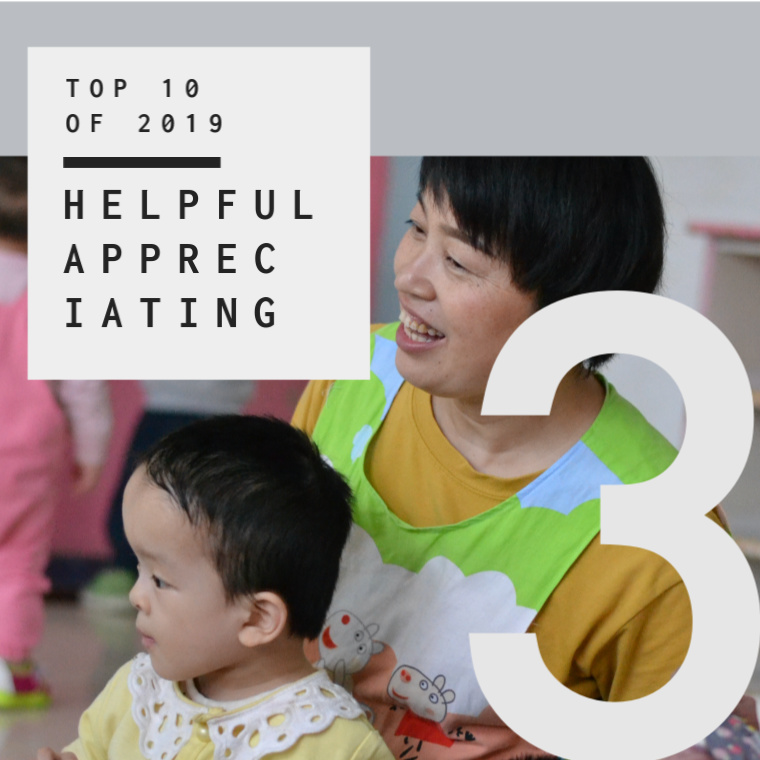
3. Helpful appreciating.
“There must be times when you wonder what in the world you can do for a certain child or a certain family [or orphanage nanny], yet you wanted so much to be of service that little by little the answer often comes to you, and you discover the way to be that helpful appreciator which invariably makes the difference—no matter how primitive our resources may be.” – Fred Rogers
Despite continued policy challenges, we were able to still go in 2019 as we have gone before to care for caregivers in an orphanage in China as helpful appreciators, gently coming alongside and magnifying beauty and goodness. After all, they are there. It’s a privilege to say over and over again, “Look, look! What you are doing is good! It matters, and you matter.”
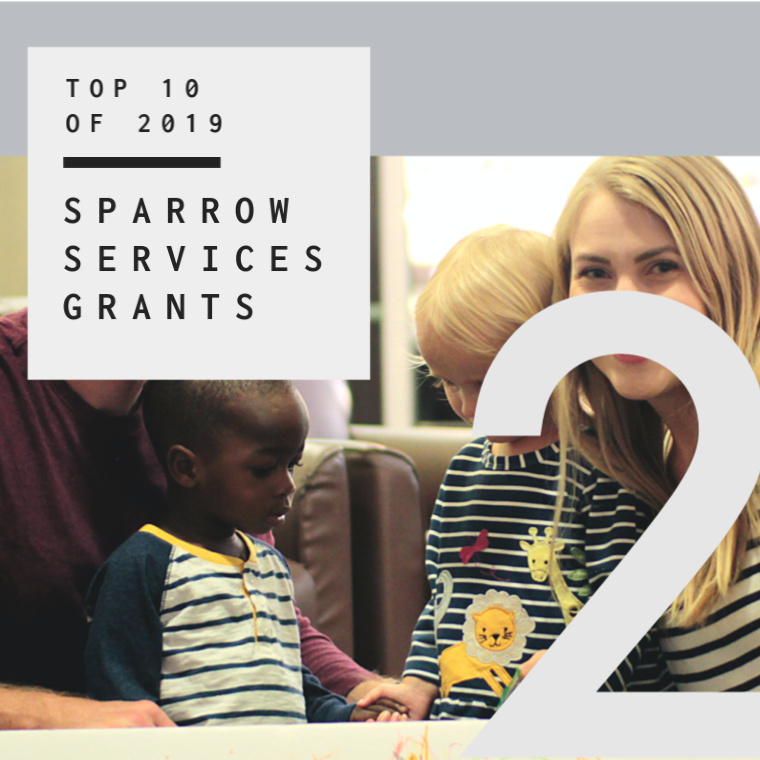
2. Sparrow Services Grants. They’re different, our grants. We don’t just select families from applications and write checks. We do give some financial help, but our grants include more than that to support their marriages, the whole family and children already in their home, and the attachment between kids and grownups from the start. In 2019, we brought 14 more families into the Sparrow Services program who are adopting from Bulgaria (3), India (2), China (2), South Korea (2), Djibouti, South Africa, Hungary, Columbia, and the United States–we opened Sparrow Services to include families adopting domestically in 2019! We also celebrated the homecomings of 11 children to Sparrow Services Grant families in 2019: 3 from India, 2 from Thailand, 2 from China, 2 from Bulgaria, 1 from South Korea, and 1 from Liberia (pictured here) for whom we celebrated a little extra given some big challenges that brought us all to our knees. Our application window opens once again as of January 1st, 2020 for the next cohort of families. We can’t wait to see which families will join our Sparrow family next.
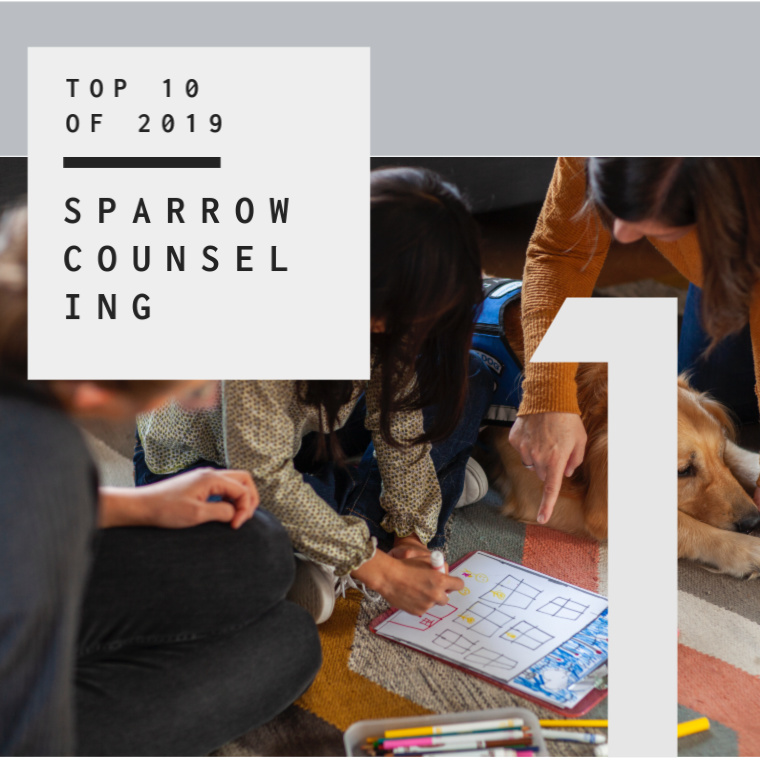
1. Sparrow Counseling. In July 2019, we launched our very own specialized program to offer child and family counseling services to meet the unique needs of foster and adoptive families. We knew it would be a pretty big deal to take this on, but we trusted it was the right thing for us as an organization and for families around us. And, the decision has been confirmed over the past 6 months as children and their grownups have entered into this space and experienced each other in new ways that have changed their stories. It’s pretty miraculous really—not because of anything we do but because we get to see and experience it too. That may be the brightest highlight of all of 2019—singular moments…a young girl able to say “I’m sad” to her mom for the first time, a boy able to tell his own story without shame, a dad saying that it feels good to laugh together, a mom who can say “I’m a good mom” and really believe it…that all come together and remind us that hope is possible and that it is our calling, privilege, and joy to be hope growers and bridge builders.
Stay tuned as our Top 10 for 2020 unfolds before our very eyes. We can’t wait to live it.
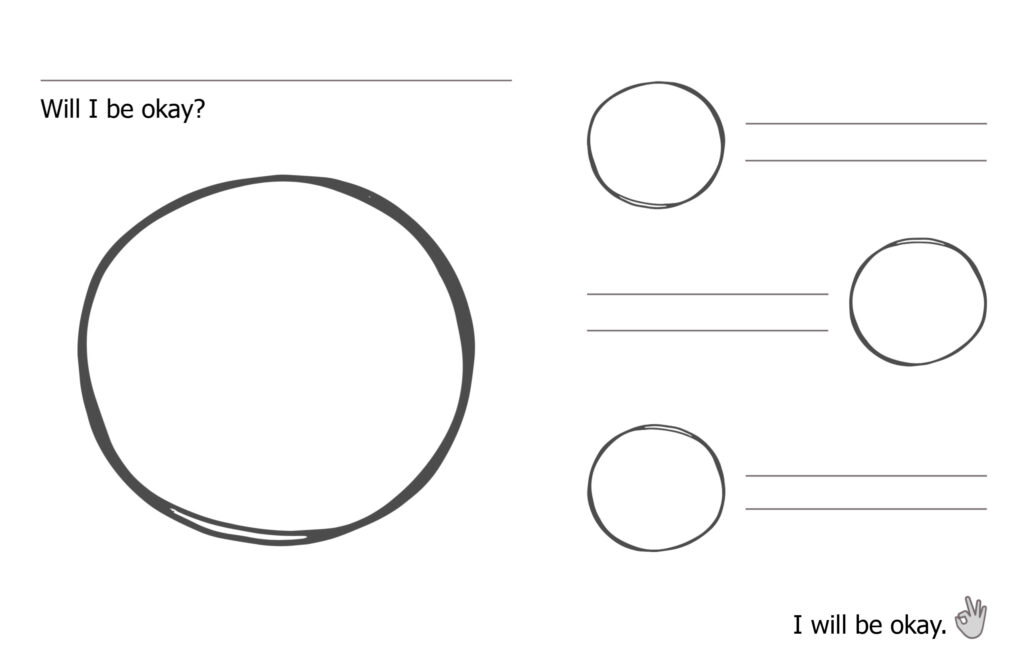
 Kelly Raudenbush founded The Sparrow Fund along with her husband Mark in 2011 and launched Project Puppy Love, a canine-assisted therapy program for foster and adoptive families in June 2018. As a child and family therapist, Kelly has a particular interest in (a) encouraging and empowering parents who are struggling to attach with their children, (b) helping parents walk with their children as they process their stories, (c) helping couples continue to pursue each other and grow together while they parent their children as a team, and (d) training and empowering orphanage staff in China to build relationships with children and each other. Kelly and Mark have been married since 1998 and have 3 biological children and 1 daughter who was adopted as a toddler from China in 2010. You can contact Kelly directly at kellyraudenbush@sparrowfund.org.
Kelly Raudenbush founded The Sparrow Fund along with her husband Mark in 2011 and launched Project Puppy Love, a canine-assisted therapy program for foster and adoptive families in June 2018. As a child and family therapist, Kelly has a particular interest in (a) encouraging and empowering parents who are struggling to attach with their children, (b) helping parents walk with their children as they process their stories, (c) helping couples continue to pursue each other and grow together while they parent their children as a team, and (d) training and empowering orphanage staff in China to build relationships with children and each other. Kelly and Mark have been married since 1998 and have 3 biological children and 1 daughter who was adopted as a toddler from China in 2010. You can contact Kelly directly at kellyraudenbush@sparrowfund.org.
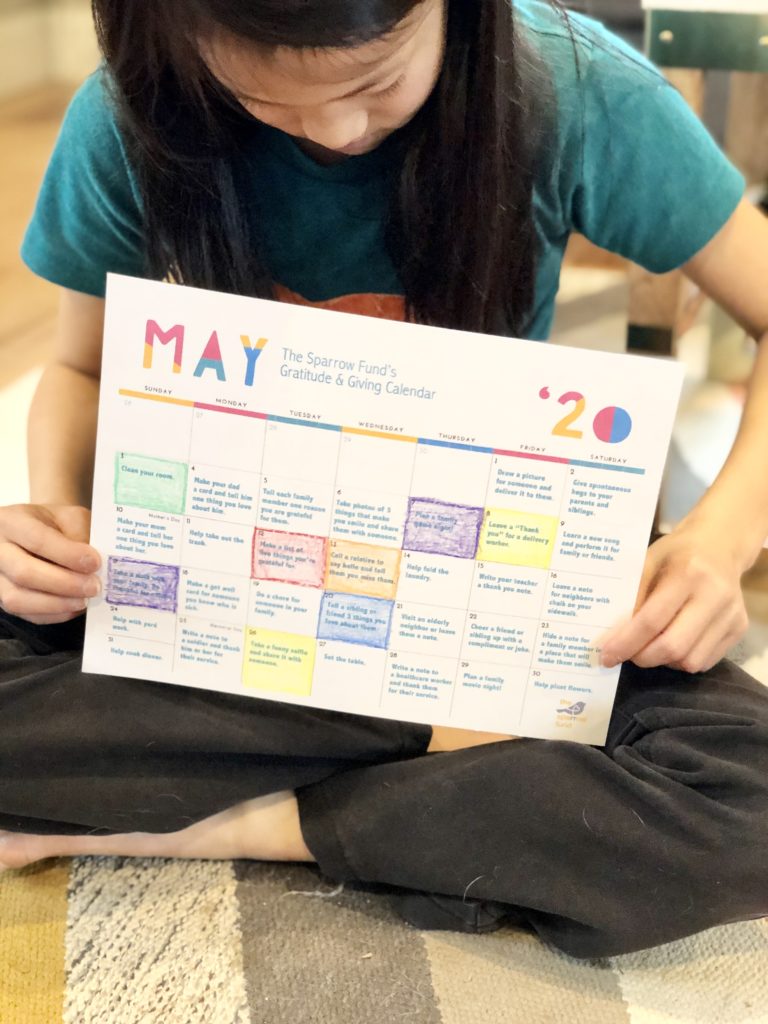











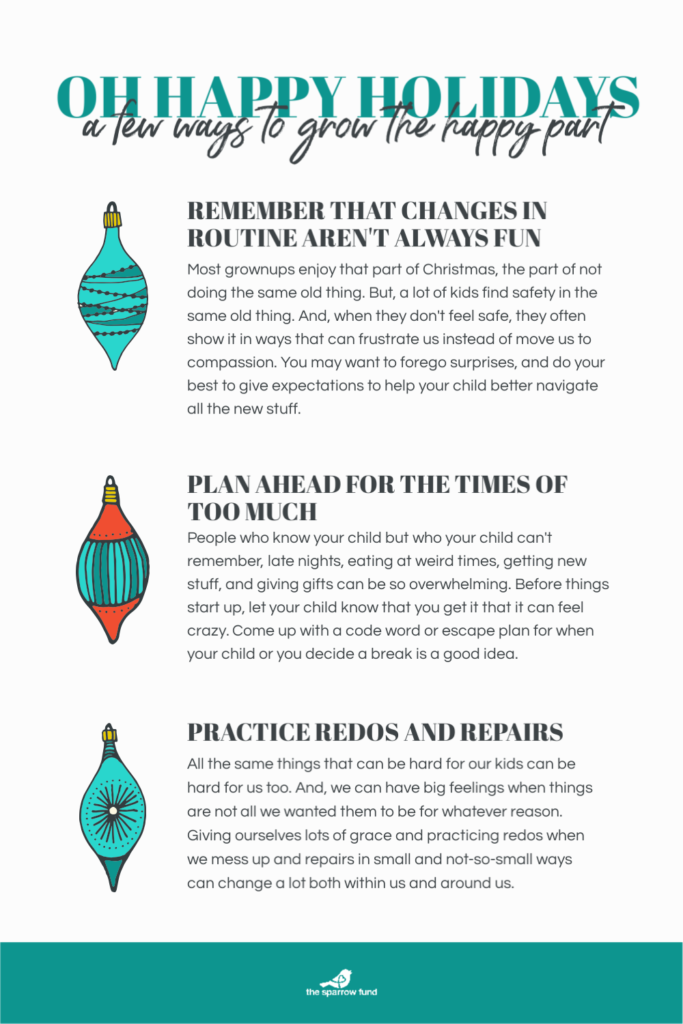
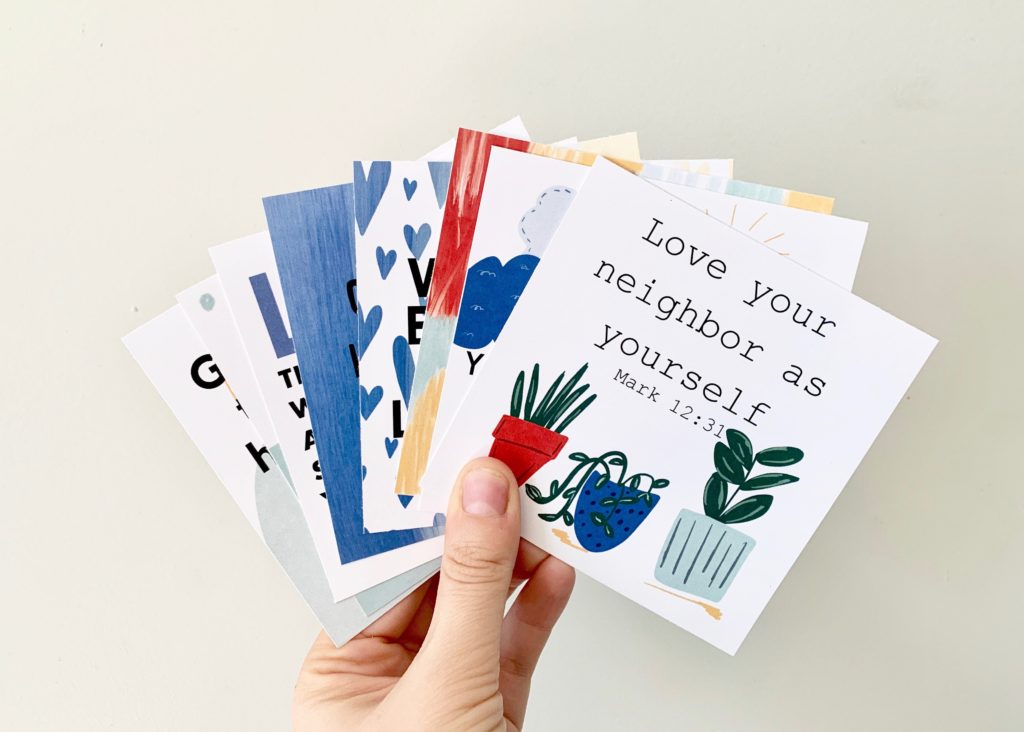

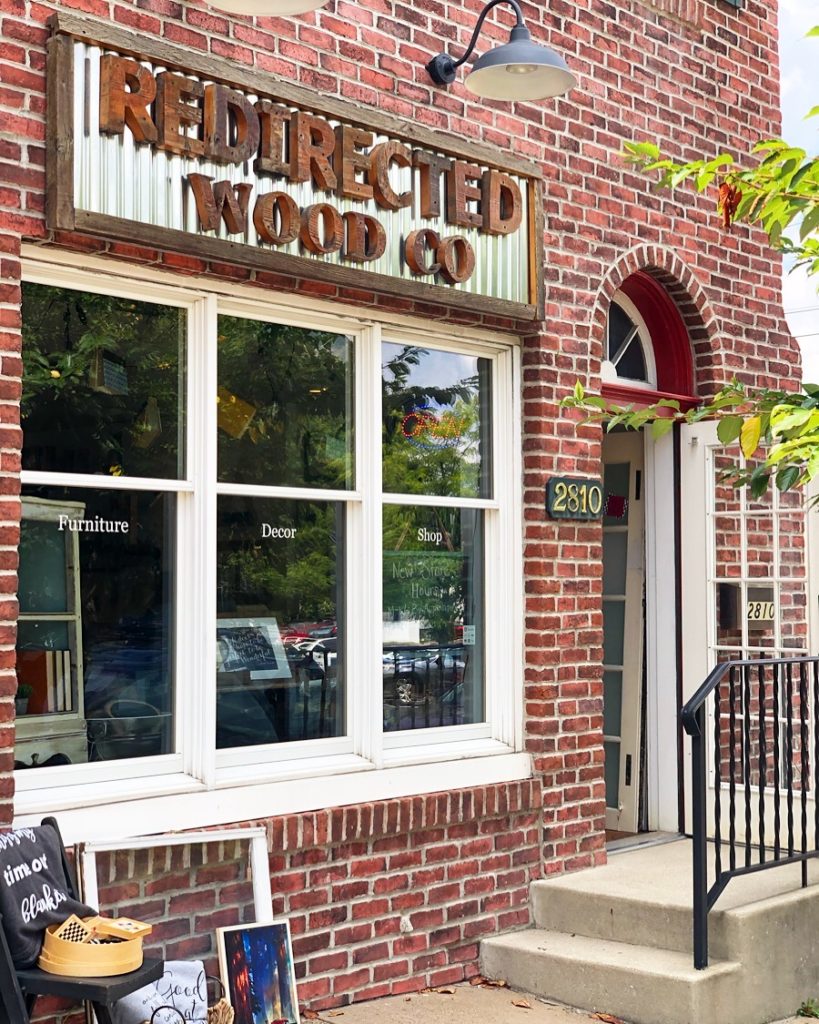

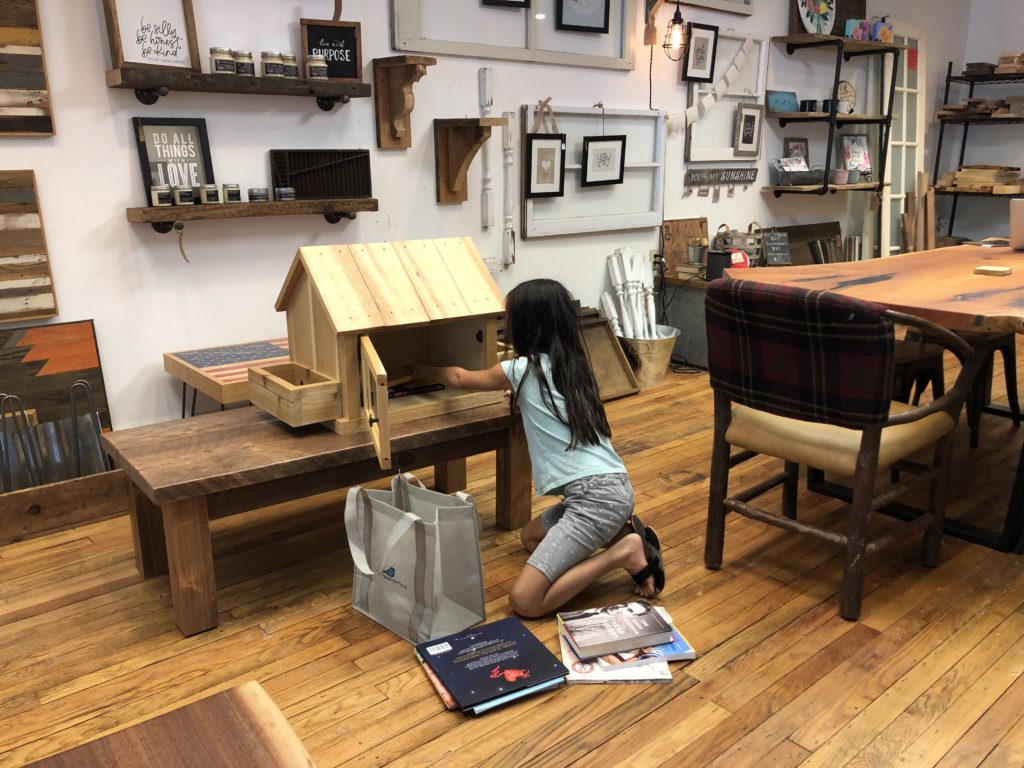
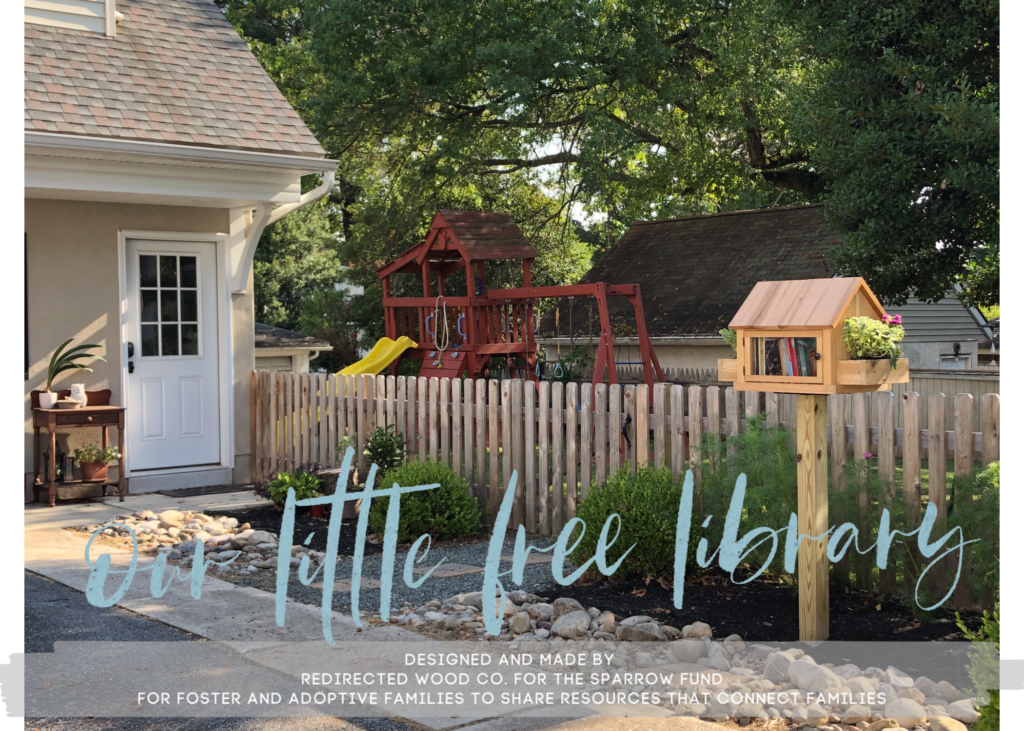
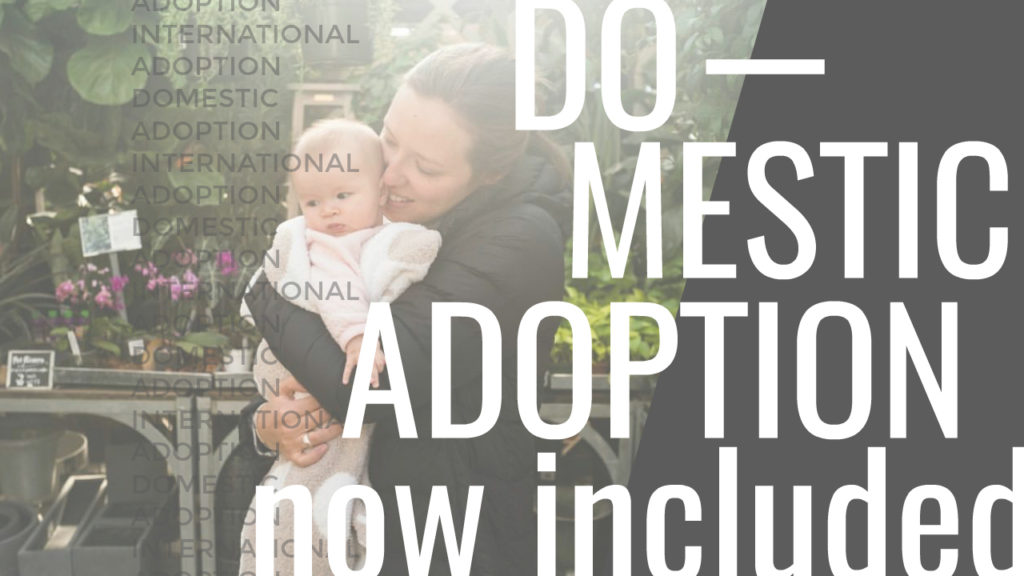
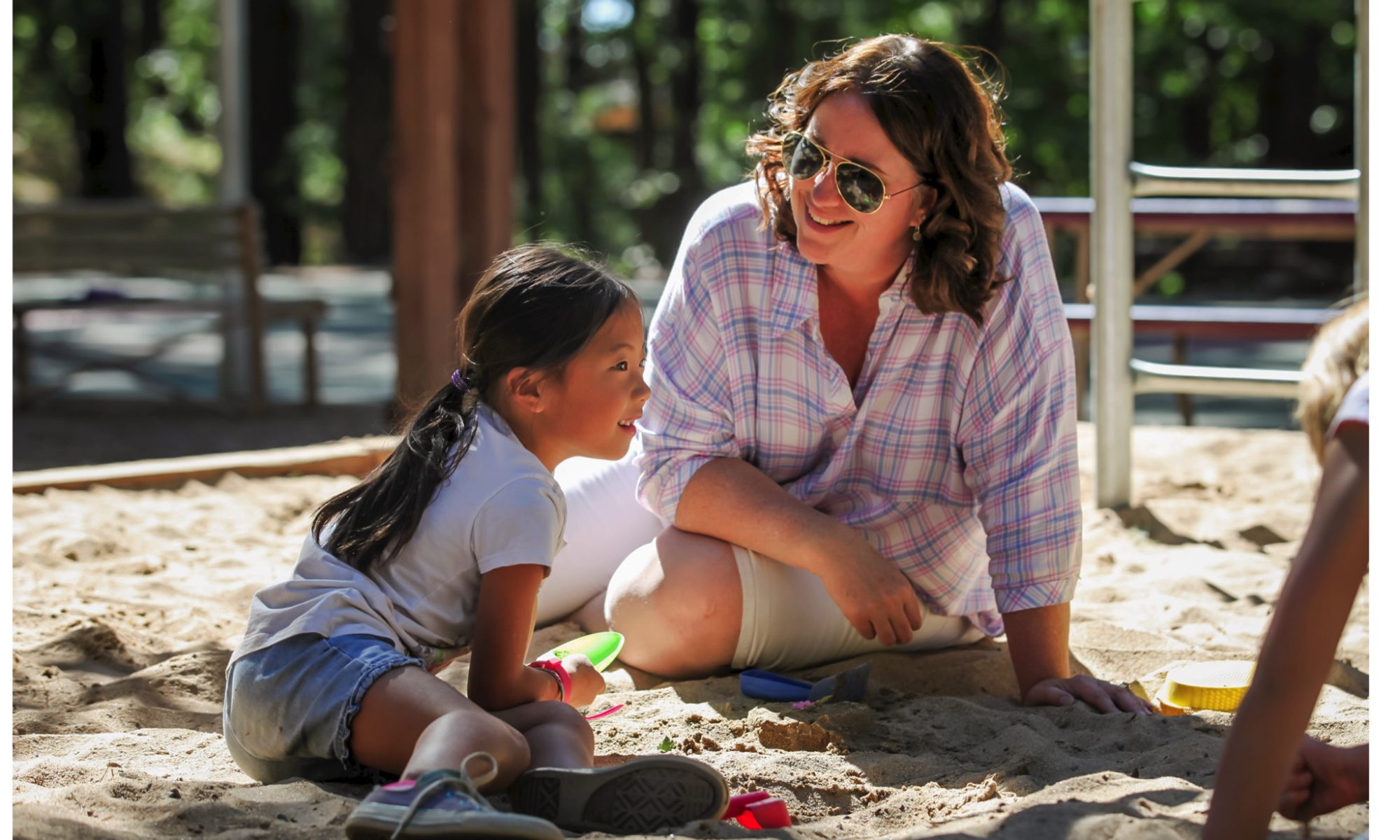
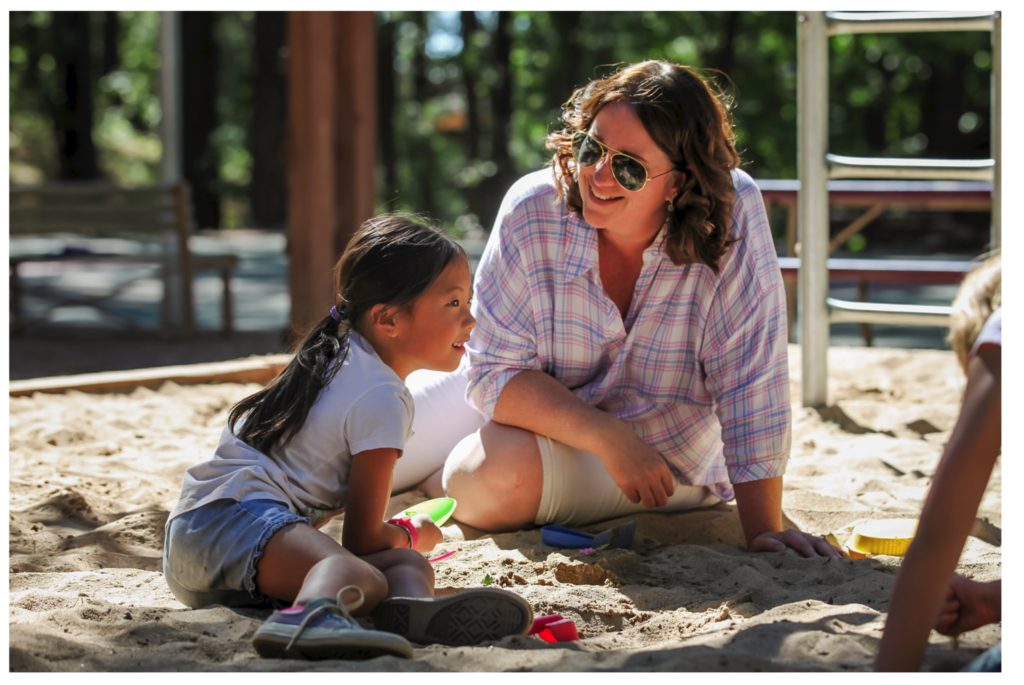
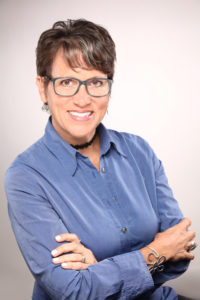 Karen Doyle Buckwalter, LCSW, has more than 30 years of experience working with children, adolescents and families, the last 24 of which have been at Chaddock, a multiservice agency providing a range of residential, educational, and community-based services for youth, birth through age 21, and their families. While at Chaddock, she has been instrumental in the development of an innovative residential program for adolescents, ages 8 – 16, with Attachment Disorders and Complex Trauma. One of the only programs of its kind serving older adolescents, Chaddock’s Developmental Trauma and Attachment Program® (DTAP®) has served youth from 33 different states in the U.S. originating from 18 different countries. She has coauthored journal articles and book chapters as well as articles for Adoption Today and Fostering Families Today, published her first book,
Karen Doyle Buckwalter, LCSW, has more than 30 years of experience working with children, adolescents and families, the last 24 of which have been at Chaddock, a multiservice agency providing a range of residential, educational, and community-based services for youth, birth through age 21, and their families. While at Chaddock, she has been instrumental in the development of an innovative residential program for adolescents, ages 8 – 16, with Attachment Disorders and Complex Trauma. One of the only programs of its kind serving older adolescents, Chaddock’s Developmental Trauma and Attachment Program® (DTAP®) has served youth from 33 different states in the U.S. originating from 18 different countries. She has coauthored journal articles and book chapters as well as articles for Adoption Today and Fostering Families Today, published her first book,